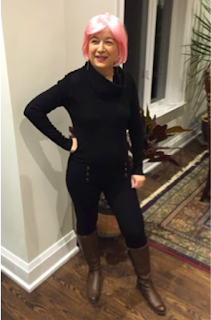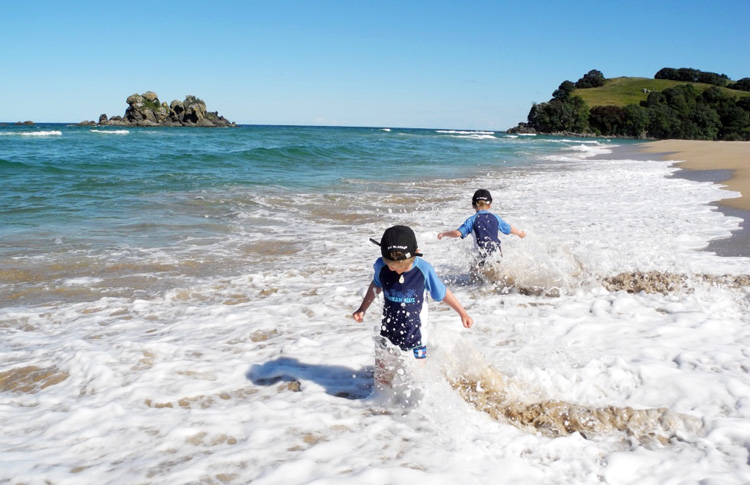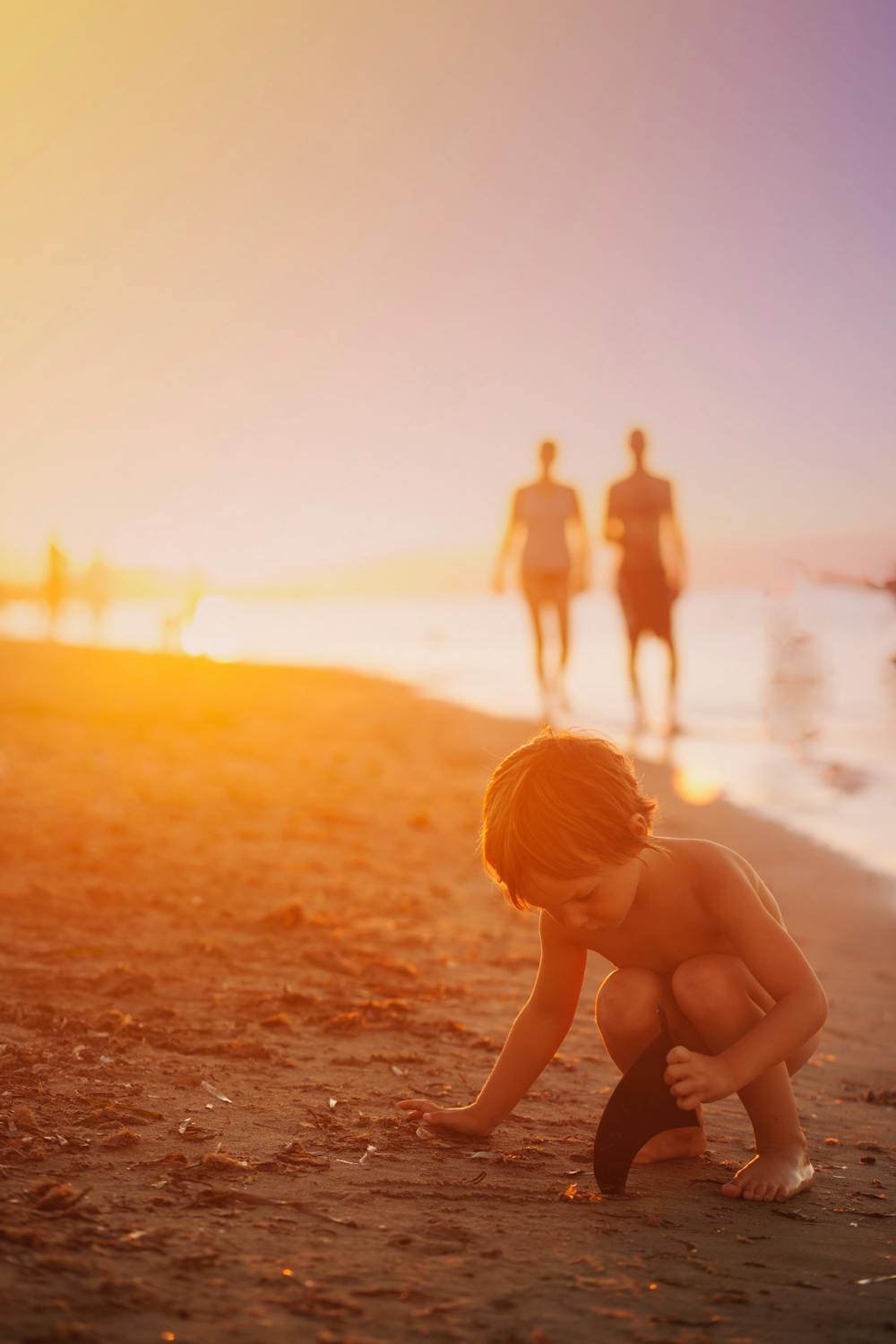The horrific murder of four people in London,
Ontario, for no reason other than their religion shows it’s urgent that we find
ways of dialling back extremism in our country. The federal government says it
plans to fight online hate groups. Fine, but what good is that if at the same
time our universities are teaching extremism to our young people?
Such is the case with the gender and women’s studies
departments at numerous universities in Canada. In response to Hamas’s recent
war against Israel, these gender studies departments – not individual
professors – but the departments themselves, have declared their solidarity
with the Palestinian “resistance” to Israel’s “settler colonialism” and
“apartheid” (here).
What’s more, these departments consider dissent illegitimate.
“We do not subscribe to a ‘both sides’ rhetoric,” they say; “anti-colonial
activism informs the foundation of our discipline,” and “Palestine is a
feminist issue.”
In other words, if you want to be in Gender Studies, denouncing Israel isn’t optional.
Clearly, this creates a hostile environment for
Israeli and Jewish students – or for any student who believes in thinking,
rather than accepting dictates. What if a student thinks the
Israeli-Palestinian conflict is not a feminist issue? Many students
might suppose gender studies should be about an open inquiry into gender, not middle east politics.
Or if the Israeli-Palestinian conflict is a
feminist issue, a student might think a feminist or anyone supporting gay
rights ought to be on the side of the one state in the region that champions
equality – and not on the side of theocratic fascists, such as Hamas that
believe women are subordinate and that executes gay men.
But that would be a “both sides rhetoric,”
contrary to the “foundation of our discipline.”
Really, these gender studies departments are more
like political cults, highly intolerant of dissenting views. And intolerance
poisons civil society.
There are many issues these gender and women’s studies
departments say cannot have two sides: They claim that Israelis – Jewish
Israelis – are settlers.
Another and more truthful viewpoint is that Jews
are indigenous to the land of Israel. Indeed, virtually everyone in the world
knows the Jewish people originated in Israel and Jews have lived there
continuously for more than 3,000 years. Arbitrarily declaring that Jews – and
only Jews – can’t be indigenous is simply antisemitic.
They claim Israelis are colonizers, again meaning
Jewish Israelis. A colony of what country? Perhaps of the Arab states – this
was where half of Israel’s Jews came from. But Algeria, Egypt, Iraq, Morocco,
Tunisia and the rest did not send their Jews to colonize Israel; they expelled
them. Neither did any other country in the world send Jews to colonize Israel.
Jews fled prejudice, pogroms, and murder to return to their indigenous
homeland.
Israel, they claim, is an apartheid state. On the
contrary, Israel is the only country in the region that grants “complete
equality of social and political rights to all its inhabitants irrespective or
religion, race or sex,” to quote Israel’s Declaration of Independence. Arab Israelis vote, get
elected, sit in governments, hold cabinet posts, and work in the judiciary as
lawyers and judges up to and including Israel’s supreme court.
In contrast, Palestinian governments in the Gaza
and the West Bank don’t allow even basic rights to their own people. As for
Jews, there aren’t any and none are welcome. In Palestinian territory it is a crime
punishable by death to sell land to an Israeli.
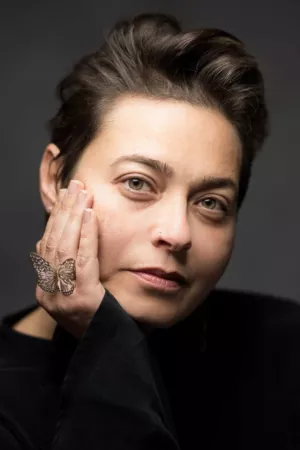 |
Mira Awad, Palestinian-Israeli
singer, actress & songwriter,
represented Israel at Eurovision |
Calling Israel “apartheid” is a way of saying it
should be wiped off the map. And what of the 6.9 million Jews who live there?
At best, anti-Israel types don’t care.
As for the recent war Hamas launched against
Israel, these gender studies departments adopt the rhetoric of Palestinian
propaganda and lay blame exclusively on one side: “We condemn the forced removal of Palestinians from
their homes in Sheikh Jarrah, the raiding of the al-Aqsa mosque, the
indiscriminate bombing of Gaza.”
These are complex issues. The homes in Sheikh
Jarrah, owned by Jews for 146 years, since 1875, and currently occupied by
Palestinians, have been subject to a 50-year court battle. People have differing
views on the rights and the wrongs of it. It’s possible (though unlikely) the courts will finally
declare the Palestinians have to move. But only the Hamas terrorist group and
its supporters believe this possibility justifies launching a war against Israel.
Similarly, Israeli police clashed with
Palestinians at the al-Aqsa Mosque and on the Temple Mount because the
Palestinians were rioting. Only the Hamas terrorist
group and its supporters believe it’s justified to launch a war in defence of a
right to riot.
Absent entirely from the statement of the genders studies
departments is any reference to the fact that Hamas started this war – and that,
as with all wars, this inevitably resulted in numerous deaths, including the
deaths of innocents. Apparently, they haven’t grasped this cause-and-effect
relationship, nor that the inevitable deaths of innocents is a big reason it’s
wrong to start a war.
Absent entirely is any reference to Hamas firing
4,340 missiles indiscriminately at Israeli towns and cities with the object of
murdering as many people as possible – Jews, Arabs or whoever happened to be on
the ground.
Absent entirely is any reference to Hamas
embedding themselves in the civilian population in Gaza, making every missile
launched against Israel a double war crime – for indiscriminately attacking
Israeli civilians and for endangering Gaza’s civilian population by using them
as human shields.
As for Israel’s supposed “indiscriminate bombing
of Gaza,” only Hamas and its supporters believe this happened.
Fighting a terrorist group such as Hamas poses
impossible dilemmas. Like any state, Israel is morally obliged to protect its
people from attack. It’s a state’s most fundamental responsibility. Yet Hamas’s
defensive strategy is to try to ensure that any response from Israel results in
Palestinian deaths.
Israel’s answer has been to take extraordinary steps
to try to prevent civilian deaths – steps never before imagined by any army in
the world and going far beyond anything required by international law. Before
bombing targets where civilians are present, the Israeli army goes so far as to
telephone occupants to warn them to leave. Obviously, this means the terrorists
also leave, so Israel pays a high military cost.
Israel’s attempts to prevent civilian deaths are
not entirely successful. It remains a hard question: How can a state protect
itself from a terrorist group like Hamas that deliberately hides behind a civilian
population?
But if you’re in one of these gender studies
departments, you’re not supposed to ask such questions. That would be a “both
sides narrative,” and you’re supposed to support only one side – the side
launching 4,34o missiles with the aim of murdering as many people as possible.
Premiers, your governments are responsible for the
universities in your provinces. It’s time you remind them that their funding
requires them to be places of free and open inquiry –not places where whole departments
preach any political narrative, much less the kind of intolerant, extremist
position taken by these gender and women’s studies departments.
***
Brian Henry is a writer, editor, creative writing instructor, and publisher of the Quick Brown Fox blog. He’s written opinion pieces for the National Post and the Toronto Star and was a regular contributor to the (now defunct) Jewish Tribune and in the UK for Harry’s Place and for Engage, the anti-racist campaign against antisemitism. This piece was previously published on TheJ.ca.
***
Departments at Canadian universities endorsing the
anti-Israel statement:
Nova
Scotia:
Women and Gender Studies Program at Saint
Mary's University, Halifax, Canada
Women’s
and Gender Studies Program, St. Francis Xavier University, Antigonish, Nova
Scotia, Canada
New Brunswick:
Department of Women’s, Gender and
Sexuality Studies, Rutgers University New Brunswick
Quebec:
Feminist
Media Studio, Concordia University
Simone de
Beauvoir Institute, Concordia University
Ontario:
 |
Eden Alene, Ethiopian-Israeli,
Israel's rep at Eurovision 2021 |
Department of Gender Studies, Queens University. Kingston, ON Canada
Traditional Lands of the Haudenosaunee and Anishinaabe peoples)
Gender
& Social Justice Program, University of Waterloo, Canada
Gender Equality and Social Justice Department at Nipissing
University, Canada
Gender
Studies and Feminist Research Graduate Program, McMaster University, Canada
Institute of Feminist and Gender Studies, University of
Ottawa
Institute of Feminist and Gender Studies, University of
Ottawa, Ottawa Canada
Pauline
Jewett Institute of Women’s and Gender Studies, Carleton University
School of
Gender, Sexuality and Women's Studies, York University, Canada
The Social Justice
Studies Department, Lakehead University in Thunder Bay and Orillia, Ontario,
traditional territories of the Anishinaabe, Ojibwe, Odawa, and Pottawatomi
 |
Dr. Mouna Moroun, the Arab woman who heads Neuroscience.
at University of Haifa |
Women and Gender Studies
Institute, University of Toronto
Women's and Gender Studies Program, University of
Toronto/Mississauga
Saskatchewan:
Women's and Gender Studies, University of Regina, Canada
Alberta:
Department
of Women & Gender Studies, University of Lethbridge, Canada
Women's and Gender
Studies Program, Mount Royal University (Calgary, Treaty 7, Canada)
B.C.:
Department of Race, Gender, Sexuality and Social Justice,
University of British Columbia, Vancouver, Canada
Gender
Studies, University of Victoria, Victoria, BC, Canada
Women's Studies Program, Langara College, Musqueam Territory /
Vancouver


